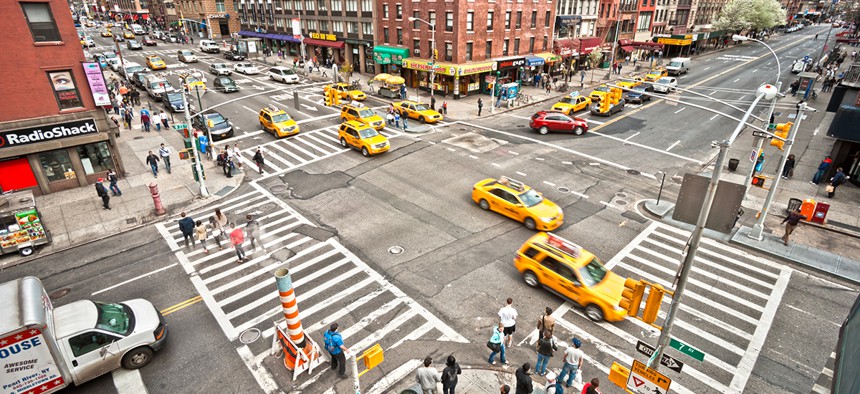The Company Rumored to Help the FBI Hack an iPhone Is Now Going After Distracted Drivers

Luciano Mortula/Shutterstock.com
A recently introduced bill would permit state authorities to use scanning technology to determine whether a phone or other device was in use around the time of a collision.
New York State legislators want law enforcement to be able to partly access mobile devices at the site of car crashes to investigate whether a driver was distracted.
A recently introduced bill would permit state authorities to use scanning technology to determine whether a phone or other device was in use around the time of a collision. The actual capability is being developed by Cellebrite, the Israeli security firm that was rumored to have helped the FBI on crack the iPhone used in last year’s San Bernardino shooting (though The Washington Post today reported the FBI did not need Cellebrite’s assistance).
The bill’s sponsors say this technology would help curb accidents from distracted driving and cellphone use, which have crept up in recent years even as crashes and fatalities as a whole have declined.
Using a hand-held electronic device while driving is illegal under New York State law, and punishable by fines of between $50 and $450.
A press release on the legislation is billing Cellebrite’s scanning technology as “Textalyzer”—i.e., a breathalyzer for texting. It also tries to head off privacy concerns. Per the bill, scans by law enforcement would not “include the content or origin or any communication or game conducted, or image or electronic data viewed, on a mobile telephone or portable electronic device.”
That said, concerns are still likely to surface. As the bill is currently written, law enforcement would have “implied consent” from drivers involved in collisions to scan their devices. Drivers who refuse could have their licenses revoked, regardless of whether they are ultimately found at fault in the accident.
The Supreme Court ruled unanimously in 2014 that police cannot search the cell phones of criminal suspects without a warrant, a decision that was viewed as a sweeping victory for privacy advocates.
NEXT STORY: Moving to the Cloud? Change Your Culture First





